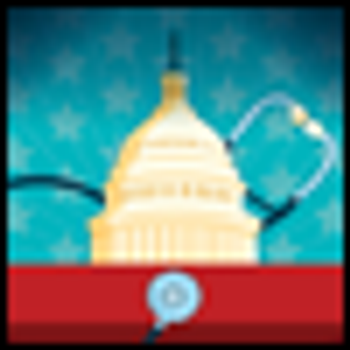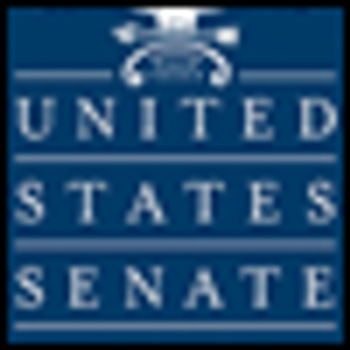
Starting in 2015, psychiatrists will have to juggle antidepressant selections for Medicare patients. What might this mean for your patients?

Starting in 2015, psychiatrists will have to juggle antidepressant selections for Medicare patients. What might this mean for your patients?

Insurers appear to have plenty of leeway to continue-or even expand-the kind of anti-psychiatrist policies at the core of 2 lawsuits filed last year. Details here.

Come next year, psychiatrists will start seeing patients who have purchased new individual and small-group health plans on the state exchanges mandated by the Affordable Care Act.

The emergence of accountable care organizations (ACOs) may spur changes in psychiatric care, especially among office-based practitioners.

Cedars, the preeminent private hospital in L.A. and considered the “hospital to the Hollywood stars,” said it would continue staffing of psychiatric support that is an adjunct to patient care throughout the medical center.

The response of psychiatrists to Medicare’s continued inhospitability to psychiatrists in 2012 is cautious.

Medicare announced in October that it would pay for depression screening in primary care settings that have “staff-assisted depression care supports” in place to ensure accurate diagnosis, effective treatment, and follow-up.

A new Medicaid demonstration program slated to begin next year will pilot a solution to the problem of “psychiatric boarding,” which has plagued general hospitals for many years.

The proposed Conditions of Participation (CoPs) from Medicare for community mental health centers (CMHCs) could expand the role and responsibilities of psychiatrists both in and beyond Medicare facilities.

The White House Office of National Drug Control Policy will work with Congress to pass new legislation requiring all physicians with Drug Enforcement Administration (DEA) registrations to undergo mandatory education on the use of long-acting and extended-release opioids.

The only question is whether Congress will cut the mental health block grant again, in 2012-and by how much.

There is wide agreement that memory loss associated with ECT is short-term, usually temporary, and rarely has a major impact, “although it shouldn’t be taken lightly,” according to Ross.

All members of the mental health community opposed the use of standardized testing to determine deviations from the mean. But the consensus fell apart thereafter.

Psychiatrists face some unappetizing developments with regard to Medicare fees starting January 1, 2011. The terms of the new benefits are not nearly as specific as mental health groups pressed for.

Final guidance from the federal government is imminent about how much of a patient’s protected health information (PHI)-including psychotherapy notes-a psychiatrist must provide to a health insurer.

The Centers for Medicare and Medicaid Services (CMS) wants rural hospitals and critical access hospitals (CAHs) to take certain new steps to ensure that the private-office psychiatrists they connect to in big cities for telemedicine services are qualified for that purpose.

Business groups and leading behavioral managed care companies have mounted a multifront attack on the new mental health parity law. The Paul Wellstone and Pete Domenici Mental Health Parity and Addiction Equity Act (MHPAEA) went into effect on January 1, 2010, for employer plans starting after that date. However, companies have been awaiting a delayed final rule interpreting the terms of the MHPAEA.

As if psychiatrists didn’t have enough to worry about with regard to complying with upcoming Medicare e-Prescribing dictates, there is now a second layer of complication . . . the interim final rule from the DEA, which prescribes requirements for physicians who want to use electronic prescribing for controlled substances.

The health insurance reform bill Congress passed and President Obama signed has a number of small, psychiatric-targeted provisions, but their significance probably pales beside the first-time insuring of somewhere above 30 million Americans-some of whom will visit psychiatrists for the first time in their lives.

Electroconvulsive therapy (ECT) devices are undergoing FDA scrutiny and could become subject to new requirements and restrictions that affect their use by psychiatrists. The FDA is considering whether to keep ECT devices in their current Class III category or drop them to Class II.

Six months after the deadline for a final rule, 3 federal departments published an interim final rule that leaves a number of questions open about the application of the expanded mental health parity law passed by Congress in October 2008. But the penultimate version of the implementing regulations won mostly praise from psychiatrists and psychiatric hospitals.

A major speech on mental health from Health and Human Services (HHS) Secretary Kathleen Sebelius and the ascension of a new administrator at the Substance Abuse and Mental Health Services Administration (SAMHSA) have sparked hopes that the Obama administration is putting increased emphasis on mental health issues. Buoying those hopes further is the fact that the White House has recruited notable mental health advocates in other top positions, such as Richard G. Frank and Sherry A. Glied, authors of the book Better But Not Well: Mental Health Policy in the United States Since 1950. Glied has been nominated as assistant secretary for planning and evaluation at the HHS. Frank is her deputy for disability and mental health policy.

There are very few, if any, direct mental health provisions in the congressional health care legislation that has passed the House and is now awaiting Senate approval. The Senate bill-the Patient Protection and Affordable Care Act (HR 3590)-debated on the floor in December is similar in some respects to the Affordable Health Care for America Act (HR 3962), which the House passed by an extremely thin, Democrat-heavy vote of 220-215 on November 7, 2009. Both bills appear to extend mental health parity to individual and group policies sold within new health insurance Exchanges. They would also expand Medicaid, begin funding medical home demonstrations, and ban insurance companies from denying policies based on an applicant’s preexisting condition.

The Medicare program appears to have reversed itself and now is seriously considering removing anti-depressants and antipsychotics from its “protected” status on Part D drug plan formularies.

With billions of dollars for electronic health record (EHR) technology purchases hanging in the balance, psychiatrists need to be paying attention to the Department of Health and Human Services (HHS) deliberations on the definition of “meaningful use.”

The FDA’s new rule on “expanded access programs” would allow pharmaceutical companies to give seriously ill patients broader access to investigational drugs outside of clinical trials. A limited number of expanded access programs were created in the past under sketchy FDA rules; the 2 new allied rules-one on the conditions drug companies must meet to create a program, the other on how they can charge for the drugs-ostensibly give pharma a wider berth. Moreover, psychotropic drugs can be provided under the clarified policy.

The congressional drive to reform health care could result in a 5% Medicare bonus for psychiatrists because of a provision in a prospective bill that would also have an impact on private insurance payment. As the House and Senate struggle to turn concepts into legislative language, one thing Democrats and Republicans agree on is that primary care physicians should be better compensated, probably with money taken out of the pockets of some specialties.

A National Academy of Sciences (NAS) report urging a more coordinated approach to prevention and treatment of depression in parents-because of its impact on children-hit the streets just as Congress began considering legislation to reform the US health insurance system. The NAS report made a number of recommendations for changing the approach of both public and private health insurers toward depression, although the front-line troops expected to deal with the problem are primary care physicians, who already treat 70% of patients with depression.

New mental health coverage mandates going into effect in 2010 will force corporations and their insurance companies to adopt new utilization management protocols that could put the squeeze on psychiatrists.

Psychiatrists failed to get privacy protection for an expanded version of their psychotherapy notes in the stimulus bill Congress passed last February. But the American Recovery and Reinvestment Act (ARRA) did authorize a study on the issue and made other pro-privacy improvements to the Health Insurance Portability and Accountability Act of 1996 (HIPAA).

Published: January 24th 2014 | Updated:

Published: February 27th 2014 | Updated:

Published: April 2nd 2008 | Updated:

Published: May 2nd 2008 | Updated:

Published: June 2nd 2008 | Updated:

Published: July 1st 2008 | Updated: